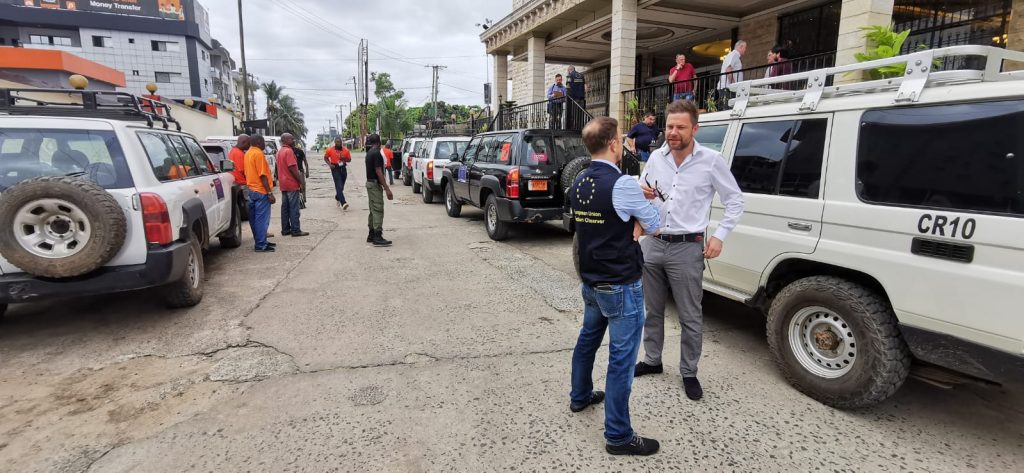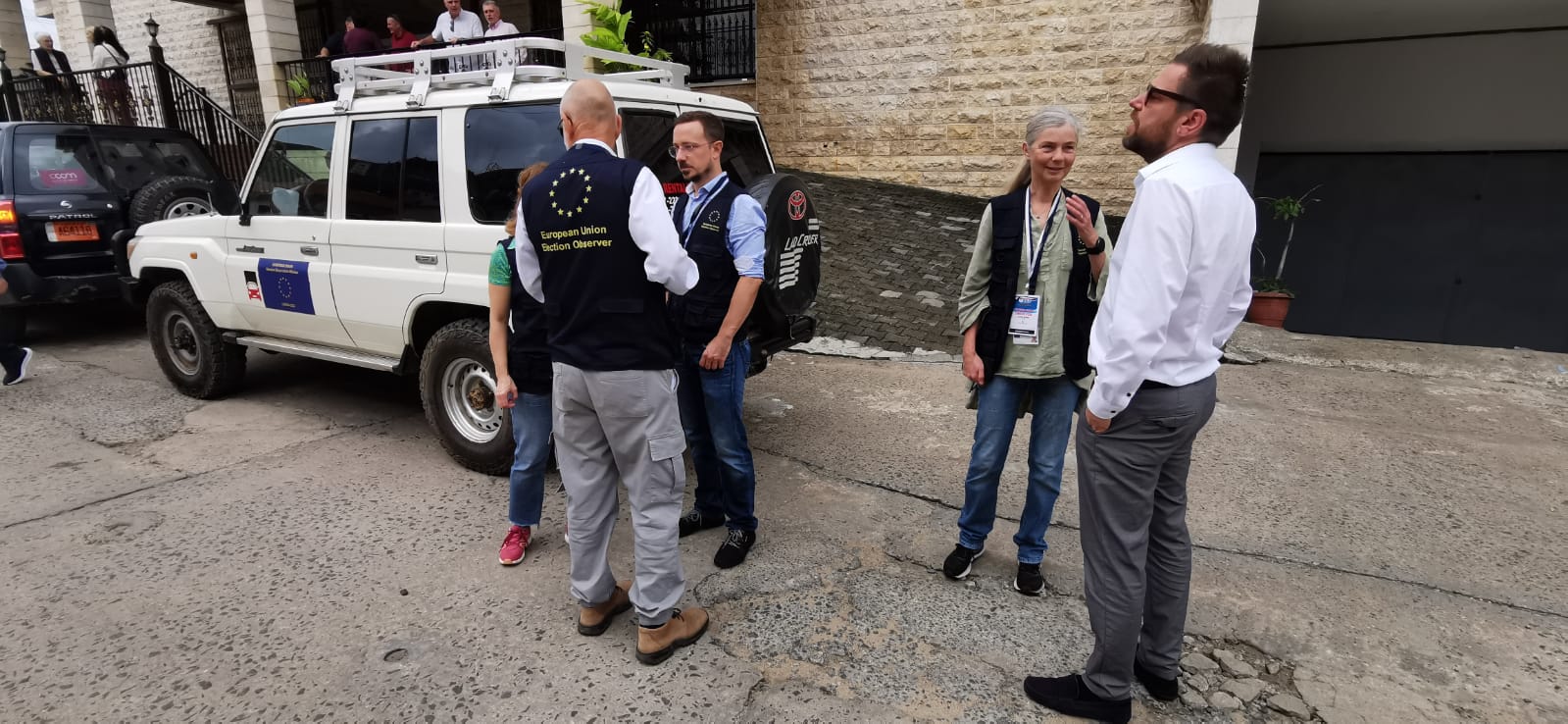The European Union Election Observation Mission (EU EOM) to Liberia deployed on Sunday 12 November 36 Short-Term Observers (STOs) to all 15 counties of the country. A Delegation of 6 members of the European Parliament headed by Mr. Leopoldo Lopez Gil and around 8 diplomats from EU Member States accredited in Liberia will also be integrated into the mission. EU Election Observers come from the 27 different EU Member States, as well as Canada, and Norway, bringing the total number of EU Observers on run-off Election Day to around 90.
On 31 October, the Mission had already deployed 20 Long-Term Observers for the second time covering all 15 counties for the run-off Presidential Elections.

On Election Day, in teams of two, EU observers will follow all election-related activities at various polling places and voting precincts across the 15 counties. They will observe the opening of polling places and will assess the electoral environment in which the run-off Presidential Elections take place. After the closure of voting, EU observers will also follow the counting, and result-tabulation process until the publication of results.
The EU Election Observation Mission will present its preliminary statement of findings in a press conference shortly after run-off Election Day. A Final Report offering recommendations to enhance future electoral processes will be presented after completion of the entire election process.
The EU has an established methodology for observing elections. Observers do not interfere in the electoral process and have no authority to change or correct any shortcomings. All EU election observers are bound by a strict code of conduct and ethical guidelines that guarantee neutrality and impartiality.
The EU EOM evaluates according to international standards and operates by the ‘Declaration of Principles for International Election Observation’ adopted at the United Nations in 2005 by several international bodies involved in election observation. The main objectives of EU Election Observations are the support of the democratic process in partner countries, to enhance public confidence in the electoral process, and to strengthen respect for human rights and the rule of law.

